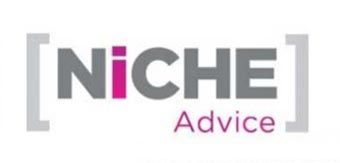
Image by StockSnap from Pixabay
Remortgage to Pay for a Wedding or Getting Finance Another Way?
Remortgage to Pay for a Wedding or not? Paying for a wedding and honeymoon is one of the most expensive but rewarding times. I don’t need to tell you any item you buy that has the word “wedding” associated with it attracts a premium. To help finance a wedding one option you can consider is remortgaging your home to fund these expenses. In this article, we will explore the question, “Should you remortgage to pay for a wedding?” by weighing the pros and cons of this financial decision and comparing it to alternatives such as personal or secured loans.
Pros of Remortgaging to Pay for a Wedding
- Lower Interest Rates:
Mortgage rates are often cheaper than those for personal loans and nearly always cheaper than second-charge secured loans. This should, therefore, provide lower monthly payments, which could be important to you at this expensive time of funding the wedding and starting a new life together.
One of the main types of mortgages is “fixed” rates, which provide certainty in the monthly repayment level for a set period, typically 1, 2, 3, and 5 years. This allows you to budget effectively.
- Larger Loan Amount:
Mortgages provide much greater borrowing potential than personal loans, which may not cover what you need for significant wedding expenses. - Reason For The Money:
Mortgages allow multiple reasons for borrowing. For instance, you could cover the wedding, honeymoon and home improvements needed to start a married life simultaneously. Personal loans are often limited to specific purposes. - Flexible Repayment Options:
– Most mainstream Mortgage Lenders allow you to make an overpayment of 10% of the mortgage balance in a year and more if you are on variable rates. This flexibility allows you to pay off the debt quicker when affordable without paying early repayment charges.
Mortgage Lenders are asked to be understanding by their regulator. If you run into financial difficulties, they may allow temporary switches to interest-only payments, giving you breathing space. More sympathy will soon be shown if you contact them at the earliest opportunity to say you are struggling.
Cons of Remortgaging to Pay for a Wedding
- Impact on Loan-to-Value (LTV) Ratio:
Mortgage Lenders typically set different interest rates in 5% bandings based of your property value, and increasing your borrowing amount can raise your LTV ratio, and potentially lead to higher interest rates on your mortgage.
For example, a property worth £100,000 is likely to get a better rate for 75%LTV mortgage (£75,000) than a 90%LTV one (£90,000) as there is more equity in the property and therefore less risk to the Mortgage Lender of getting their money back if they need to repossess and more incentive for you to keep up with repayments. - Long-Term Commitment:
A mortgage is usually a long term contract and borrowing money over a lengthy period will add to the overall cost. Conversely personal loans have shorter repayment periods typically 1 to 7 years and leave you burden free sooner. - Increased Monthly Payments:
Borrowing from financial institutions will come at a cost, they are in it to make money and will charge interest. Servicing these monthly repayments will impact your disposable income and overall financial flexibility. - Early Repayment Charges:
If you decide to remortgage before your current deal finishes, be aware of penalty charges for early repayment.
Alternative Finance – Comparing Remortgaging with Personal or Secured Loans
Personal Loans
Pros:
- Shorter repayment terms mean you will clear the debt quicker.
- Fixed repayments simplify budgeting and financial planning.
- The home is not at risk if you default on the loan.
Cons:
- Personal loan interest rates are generally higher than those for mortgages.
- You may not be able to borrow as much as through a mortgage.
Secured Loans
Pros:
- Typically, they offer lower interest rates than personal loans due to the collateral involved.
- It can provide larger loan amounts compared to personal loans.
Cons:
- Your home is at risk if you fail to keep up with repayments.
- Like remortgaging, secured loans may involve longer terms, inflating overall interest costs.
Factors to Consider
Your Current Mortgage:
- Evaluate your existing mortgage rate against potential new rates.
- Consider how extending your mortgage could affect your long-term financial plans.
- Assess the implications of increased debt on your overall financial health.
Wedding Budget:
- Clearly outline your total wedding budget, including how much needs to be financed.
- Investigate alternative funding sources such as savings, family contributions, or ways to reduce costs.
Conclusion
Research is essential when looking to finance a wedding. Most personal loans can be viewed on comparison sites; however, Mortgages or Second-Charge Secured Loans should involve professional advice as they are long-term commitments and put your home at risk, so it’s not as easy as you may have thought. to Remortgage to Pay for a Wedding. The upside is that Mortgages generally produce a cheaper monthly cost and allow you to borrow more. It could be the difference between compromising the number of wedding guests, venue, and bridesmaid numbers and honeymooning abroad.
It’s a special day and enjoyment and celebration are the focus but you cannot disregard the financial strain a wedding puts on you. You need to weigh all available options, talk to friends and family, to determine the best route for your circumstances. Remember, a wedding is a one-time occasion, but the financial implications can be enduring but if you are ready to get a Remortgage to Pay for a Wedding or Honey moon we are here to help.
Free, No-Obligation Quote today!
By completing this form you are allowing us to respond to the query by phone, email SMS and our messaging software.




